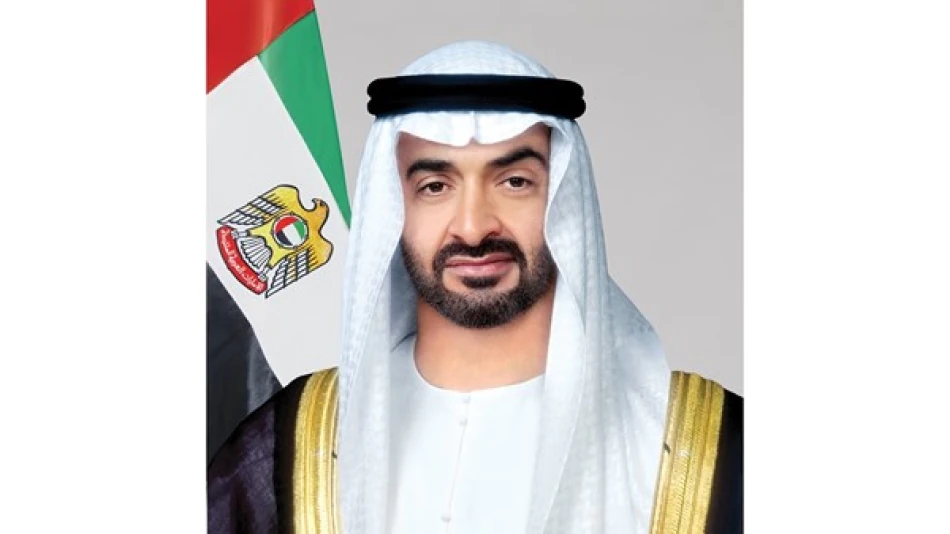
UAE President Concludes Two-Day State Visit to Angola, Strengthening Bilateral Ties
UAE President Concludes Strategic Two-Day State Visit to Angola
Sheikh Mohamed bin Zayed Al Nahyan, President of the United Arab Emirates, has wrapped up a significant two-day state visit to Angola, marking another milestone in the UAE's expanding diplomatic and economic footprint across Africa. The visit underscores Abu Dhabi's strategic pivot toward resource-rich African markets as it diversifies its global partnerships beyond traditional Middle Eastern and Western allies.
Strategic Timing Amid Global Economic Shifts
The UAE's engagement with Angola comes at a critical juncture as both nations seek to reduce their dependence on oil revenues through economic diversification. Angola, Africa's second-largest oil producer, has been struggling with economic volatility tied to commodity price fluctuations, while the UAE has been aggressively pursuing its "UAE Centennial 2071" vision to become a global hub for trade, technology, and renewable energy.
Why Angola Matters for UAE's Africa Strategy
Angola represents a gateway to the broader Southern African Development Community (SADC) market, comprising 16 countries with a combined GDP exceeding $700 billion. The nation's strategic Atlantic coastline and established infrastructure make it an ideal partner for UAE companies looking to expand their African operations. This follows similar high-level UAE diplomatic initiatives in Kenya, Ethiopia, and South Africa over the past two years.
Investment and Trade Implications
The timing of this visit coincides with renewed investor interest in African markets, particularly as Western sanctions on Russia have created opportunities for Gulf states to fill energy and infrastructure investment gaps. UAE-based sovereign wealth funds and private investors have been increasingly active in African energy, telecommunications, and logistics sectors.
Market Opportunities Beyond Oil
While both economies historically relied heavily on hydrocarbon exports, this partnership likely focuses on renewable energy, mining, agriculture, and financial services. Angola's vast mineral reserves, including diamonds and rare earth elements crucial for green technology, align with the UAE's ambitions to become a clean energy superpower.
Regional Competitive Dynamics
The UAE's Angola engagement reflects broader Gulf competition for African influence. Saudi Arabia has been equally active through its Vision 2030 initiatives, while Qatar has focused on East African markets. This diplomatic activity mirrors China's Belt and Road Initiative presence in Africa, suggesting Gulf states view the continent as essential for their post-oil economic futures.
For global investors, such high-level diplomatic engagement typically signals forthcoming bilateral trade agreements, joint venture announcements, and potentially new investment vehicles targeting African opportunities. The visit's conclusion likely sets the stage for concrete economic partnerships that could reshape both nations' trade relationships within the next 12-18 months.
Most Viewed News

 Layla Al Mansoori
Layla Al Mansoori






